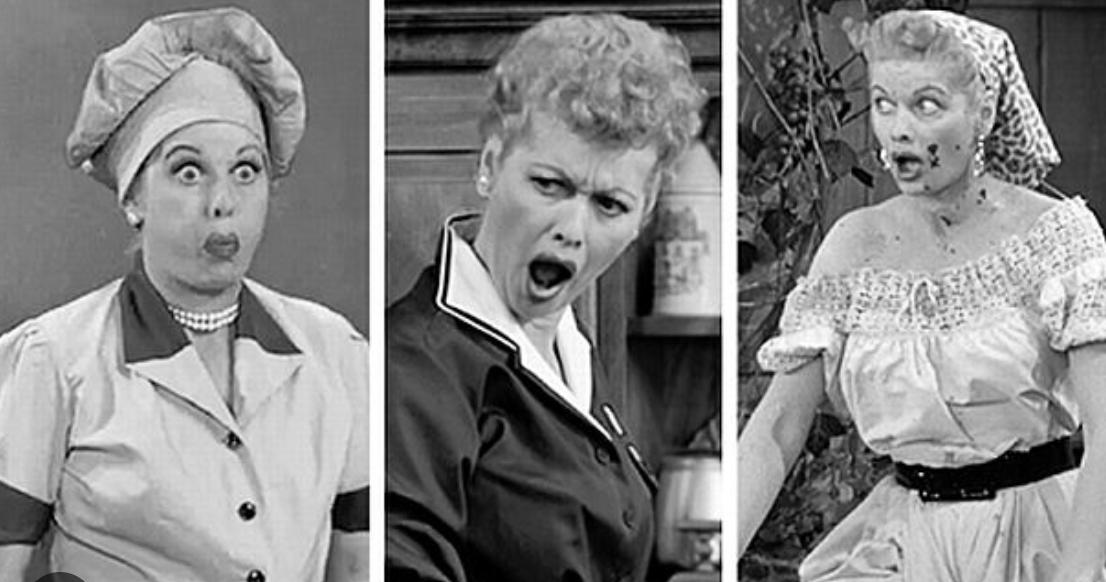
We all remember Lucy Ricardo for her hilarious schemes, her rubbery facial expressions, and her endearing clumsiness. But scratch beneath the surface of this beloved sitcom, and you’ll find a character who, despite her comedic flaws, consistently pushed against the conventional expectations of women in the 1950s. Lucy’s often-comical desires for financial independence, her persistent attempts to enter the workforce, and her unwavering pursuit of her passions, however misguided, paint a picture of a woman subtly demanding more than the traditional domestic role.
Think about it: how many times did Lucy actively seek employment outside the home? From her disastrous stints at the candy factory and the department store to her various attempts to break into show business, Lucy wasn’t content with simply being a housewife. These weren’t just plot devices for comedic mishaps; they were expressions of a yearning for autonomy and a desire to contribute beyond the domestic sphere. In an era where women were largely expected to find fulfillment solely within the home, Lucy’s persistent (albeit often chaotic) forays into the working world were a subtle form of rebellion against societal norms. She wasn’t just trying to fill her time; she was implicitly demanding a space for herself in the public sphere, a right to financial independence and personal fulfillment outside the confines of her marriage.
Furthermore, consider her relentless pursuit of her artistic passions. Lucy’s burning desire to be a performer, to be seen and heard on stage, was a driving force throughout the series. She didn’t just dream about it; she actively schemed and plotted to make it a reality, often in defiance of Ricky’s initial reservations. This unwavering dedication to her creative aspirations, despite the numerous comedic setbacks, speaks to a deeper yearning for self-expression and the validation of her talents. In a time when women’s ambitions were often relegated to the domestic realm, Lucy’s passionate pursuit of her dreams, however hilariously executed, was a quiet act of defiance against those limitations.
And then there’s the fascinating parallel between the character on screen and the powerhouse behind it: Lucille Ball. While Lucy Ricardo was navigating the comedic challenges of wanting more, Lucille Ball was shattering real-world barriers in the male-dominated landscape of Hollywood. As the co-founder and driving force behind Desilu Productions, she became one of the most powerful and influential figures in the television industry. She wasn’t just a talented actress; she was a shrewd businesswoman who made groundbreaking decisions, including the insistence on filming I Love Lucy on 35mm film (a move that ensured its longevity and profitability through syndication) and her pioneering use of the multi-camera setup.
Lucille Ball wasn’t just playing a woman who yearned for more; she was a woman who achieved more, breaking through the glass ceiling of a fiercely patriarchal industry. Her success as a producer and studio head was a powerful statement in itself, a real-life example of a woman taking control and shaping her own destiny in a world that often tried to limit her. The irony and the brilliance lie in the fact that while she was portraying a somewhat clumsy and often underestimated housewife on screen, off-screen she was a sharp, innovative, and highly successful entrepreneur.
The “rebellion” in I Love Lucy might not have been overtly political or confrontational, but it was there nonetheless. Through Lucy’s persistent desires for independence and fulfillment beyond the traditional domestic role, and through Lucille Ball’s own groundbreaking achievements behind the scenes, the show subtly challenged the restrictive gender norms of the era. It offered a glimpse of a woman who, despite her comedic flaws, yearned for agency and the right to pursue her own ambitions. This unexpected layer of depth and quiet defiance is just one more reason why I Love Lucy remains a timeless and surprisingly progressive piece of television history. It wasn’t just about the laughs; it was about a woman, both on and off-screen, subtly pushing the boundaries of what was considered possible for women in the 1950s. Now, that’s something to think about!
